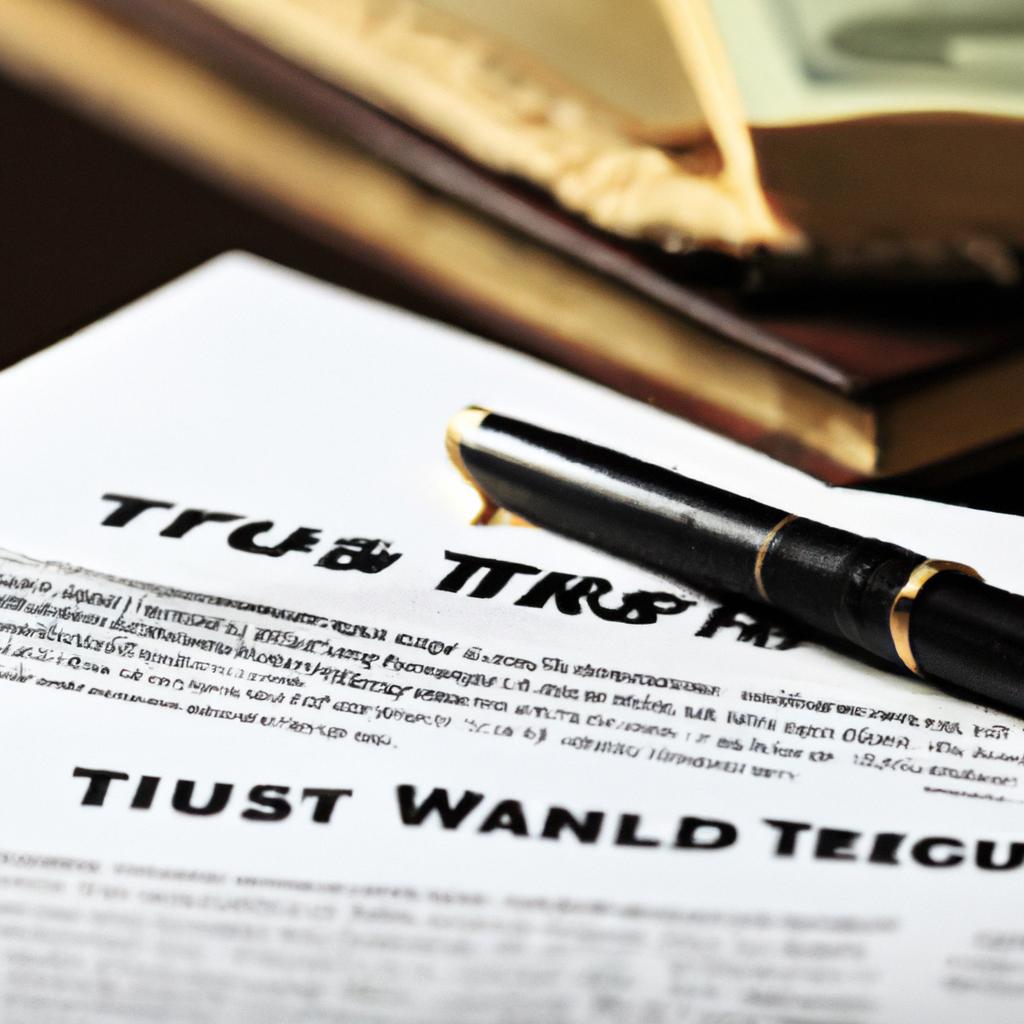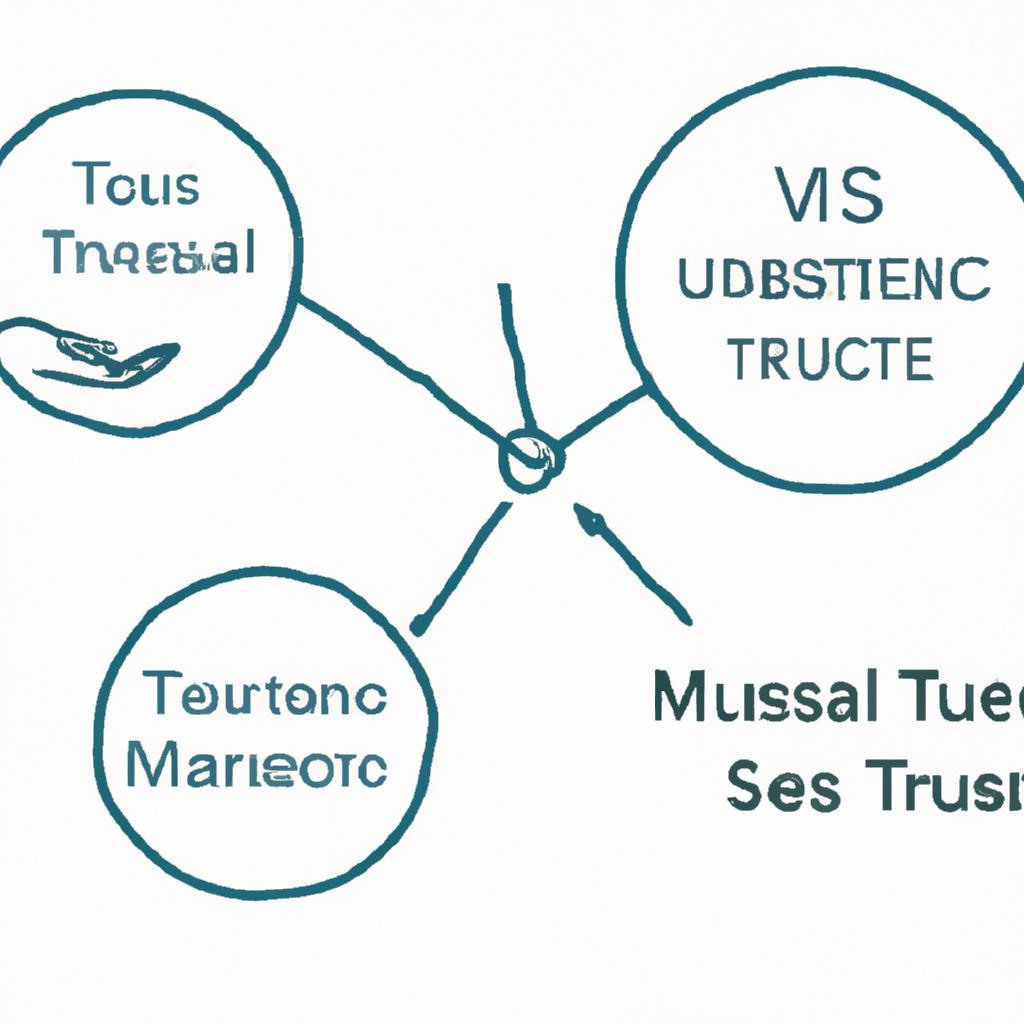Welcome, esteemed readers.
In the realm of estate planning, one term that frequently emerges is “trust fees”. As seasoned practitioners in the field of legal counsel, we at Morgan Legal Group understand the importance of comprehending the intricate details surrounding trust fees. From navigating through probate processes to crafting meticulous Wills, our expertise in estate planning, elder law, and trusts enables us to shed light on the nuances of trust fees. Join us as we delve into this complex yet essential facet of estate planning.
Understanding Trust Fees in Estate Planning
| Trust Fees in Estate Planning |
When it comes to estate planning, understanding trust fees is crucial for ensuring that your assets are properly managed and distributed according to your wishes. Trust fees are the costs associated with setting up and maintaining a trust, which is a legal arrangement that allows you to transfer assets to beneficiaries while avoiding probate.
There are various types of trust fees that you may encounter in estate planning, including:
- Initial Setup Fee: This fee covers the cost of creating the trust document and establishing the trust.
- Trustee Fees: These fees are paid to the trustee, who is responsible for managing the trust assets and carrying out your instructions.
- Asset Management Fees: Some trusts may incur fees for professional management of the trust assets, such as investing or financial planning services.

Factors Influencing Trust Fees: Complexity and Administration
Factors influencing trust fees can vary depending on the complexity and administration required. Complex trusts that involve multiple beneficiaries, intricate distribution schedules, or unique asset holdings may incur higher fees due to the additional time and expertise needed to manage them effectively. Trusts with ongoing administrative tasks, such as regular reporting requirements or complex tax planning strategies, may also result in higher fees to cover the costs of maintaining and monitoring the trust over time.
When considering trust fees, it is important to understand the specific factors that contribute to the overall cost of trust administration. These factors can include the following:
- Complexity of the trust structure
- Number of beneficiaries and their individual needs
- Type and value of assets held in the trust
- Frequency of distributions and administrative tasks
- Trustee responsibilities and expertise required
By carefully evaluating these factors, trustees can determine an appropriate fee structure that reflects the level of service needed to effectively manage the trust and meet the goals of the grantor. Trust fees should be transparent, reasonable, and reflective of the services provided to ensure that the trust remains in compliance with legal and fiduciary obligations. Trust administration is a critical aspect of estate planning, and understanding the factors that influence trust fees can help trustees make informed decisions about managing trust assets and preserving the grantor’s legacy.
Maximizing the Value of Trust Services Through Transparent Fee Structures
Trust fees play a crucial role in ensuring the smooth operation of trust services. At Morgan Legal Group, we believe in transparent fee structures as a key element in maximizing the value of trust services. By clearly outlining the fees associated with our trust services, we aim to build trust and confidence with our clients, fostering a strong and lasting relationship based on transparency and clarity.
Key elements to consider in trust fees:
- Initial setup fees
- Annual trustee fees
- Successor trustee fees
- Investment management fees
At Morgan Legal Group, we understand the importance of trust fees in estate planning and wealth management. Our transparent fee structures are designed to provide our clients with peace of mind, knowing that they are receiving fair and competitive pricing for our trust services. Trust fees should not be a barrier to accessing the benefits of trust services; instead, they should be seen as an investment in securing your financial future and protecting your assets for generations to come.
Key Considerations When Evaluating Trust Fees
When evaluating trust fees, it is crucial to consider several key factors to ensure that you are making a sound financial decision. One of the most important considerations is the fee structure offered by the trust company or individual trustee. Different trust providers may charge fees in various ways, such as a flat fee, a percentage of the trust’s assets, or a combination of both. It is essential to understand how these fees are calculated and how they may impact the overall value of the trust.
Another crucial factor to consider when evaluating trust fees is the level of service provided by the trustee. Trust fees should be reflective of the services offered, including investment management, tax planning, and distribution of assets to beneficiaries. It is essential to ensure that the trustee is experienced and reputable, as their expertise will directly impact the success of the trust. Additionally, transparency in communication and reporting is vital to ensure that you are kept informed of the trust’s performance and any associated fees.
Q&A
Q: What are trust fees?
A: Trust fees are charges levied by financial institutions for their services in managing and administering trusts.
Q: What services do trust fees cover?
A: Trust fees typically cover services such as investment management, trustee services, legal fees, and administrative costs associated with the trust.
Q: How are trust fees calculated?
A: Trust fees are usually calculated as a percentage of the total value of the assets held in the trust. The exact calculation method can vary depending on the financial institution.
Q: Are trust fees tax-deductible?
A: In some cases, trust fees may be tax-deductible. It is recommended to consult with a tax professional to determine the tax implications of trust fees.
Q: Can trust fees be negotiated?
A: Trust fees can sometimes be negotiated, especially for larger trusts or clients with significant assets. It is always worth trying to negotiate with the financial institution.
Q: What happens if trust fees are not paid?
A: If trust fees are not paid, the financial institution may take legal action to recover the unpaid fees. This can result in potential penalties and damage to the trust relationship.
Q: Are there alternatives to paying trust fees?
A: Some financial institutions may offer alternative fee structures, such as flat fees or fee-for-service arrangements. It is important to explore all options before committing to a trust fee agreement.
Closing Remarks
In conclusion, trust fees play a pivotal role in the management and administration of trusts, ensuring that trustees are compensated for their services and expertise. While these fees may vary depending on various factors, it is important to understand the value they provide in safeguarding and growing trust assets. By carefully considering and discussing trust fees with your trustee, you can establish a transparent and beneficial arrangement that ensures the success and longevity of your trust. Trust fees may seem daunting at first, but with clear communication and a solid understanding of their purpose, they can ultimately serve as a vital component in the preservation and growth of your wealth for generations to come.

